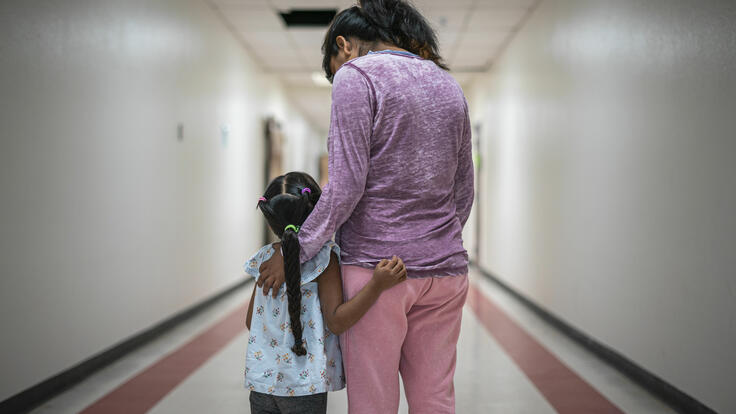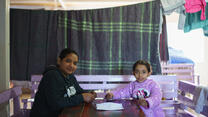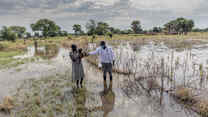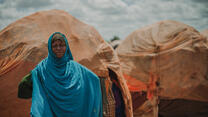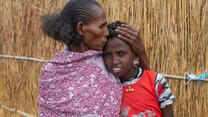Country facts
- Population: 6.3 million
- Rank in Human Development Index: 132 of 193
IRC response
- Civil War Response: 1984 to 1992
- Humanitarian Response: 2018 to date
Despite the decrease of violence and insecurity in El Salvador since March 2022, there are 1.1 million people in urgent need of aid. Central America is already experiencing regular natural disasters and shocks due to climate change. Food insecurity, climate shocks, lack of economic opportunities and violence are push factors for displacement from El Salvador. The IRC is supporting individuals and families in need of humanitarian aid and at high risk of displacement with access to critical information and services, cash relief, and creation of safe spaces.
El Salvador has been marked decades of violence, impunity, frequent and worsening natural disasters, and the negative impact from the COVID-19 pandemic and the conflict in Ukraine have had on the economy. Food prices continue to rise and the economy has not recovered from the years of violence.
Salvadoran people face different humanitarian challenges as a result of climate shocks, food insecurity, and economic crisis. Women, children and the LGBTQ+ community are the ones most at risk, especially of gender-based violence.
Today, the IRC and its partners serve individuals and families in need of aid and at increased risk of displacement. We support internally displaced people; returnees; and women, girls, youth, and members of the LGBTQ+ community who are survivors of gender-based violence. Our programs in El Salvador cover:
- Protection and empowerment. The IRC supports gender-based violence survivors through case management and the creation of specialty safe spaces, through which people can be referred to vital services, such as economic support, legal orientation, health care, education, childcare and more. The response also focuses on child protection by offering caregivers in violent contexts support and effective services that raise awareness, as well as case management for children who experience family separation, violence, exploitation, abuse, and neglect.
- Verified and critical information in times of crisis. Through CuéntaNos, the IRC promotes access to reliable information and mapping of trustworthy service providers. CuéntaNos—part of the global Signpost project and powered by Zendesk —is an online information platform created by IRC that leverages social media to offer access to information, a map of verified services, and direct referrals via a helpline for persons in crisis.
- Economic recovery and development. Through multipurpose cash assistance, the IRC supports families in needs to help them cover their most immediate needs, such as food and shelter.
- Education. The IRC implements Research in Education for Transformative Opportunities (RETO), a USAID-funded project, is identifying and transforming violence prevention evidence into actionable and scalable methodologies for key education stakeholders.
While international donors have increased funding for Central America’s protracted humanitarian crises, longer term and more investment is needed to adequately address the root drivers of displacement in the Northern Central America countries—including El Salvador—and to respond to the immediate needs that people are experiencing.
The IRC will continue to respond across the arc of the crisis and support uprooted people by expanding and scaling-up programs to deliver services and humanitarian assistance to those on the move, refugees, asylum-seekers, and returnees.

